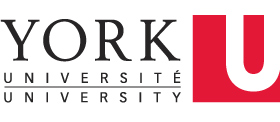Being a Successful Online Learner
Experience with computer technology
Being a successful learner online does imply that students have both access and prior experience and skills to use certain computer technology. If you need to request adaptive technology or other disability assistance, please visit Counselling & Disability Services for more information. New skills may introduced and opportunities given to develop these. However, it is anticipated that students should be able to:
- have regular access to a PC or Mac computer with the internet access (broadband internet access might be required)
- operate the basics of a PC or Mac computer (mouse, keyboard, CD-ROM).
- use the web browsers such as Internet Explorer, Firefox, and Chrome
- use word-processing software such as Microsoft Word
- use email to communicate with the instructors and peers
- search information using a search engine online
- post message and have discussion online with peers
- watch video clips and listen to audio clips online
- use Adobe Acrobat to access course materials
- download and upload files online
- work collaboratively with peers on blogs, wikis, and social networking sites
- learn to use new technology if necessary
The technological requirements vary from course to course depending on what tools will be used. It is critical to read the syllabus and other important course documents carefully and consult the course instructor if needed to make sure that you:
- know all the technical requirements as early as possible
- have access to all the required technological tools, both hardware and software
- know what to do and where to get the technological support when encountering technological difficulties/problems
- learn the required skills if needed
- are familiar with the course policy about late submission and missed coursework and alternative plans due to any technological issues
- contact the instructor to make arrangement for accommodations if needed
- contact the instructor for any questions/concerns as early as possible
